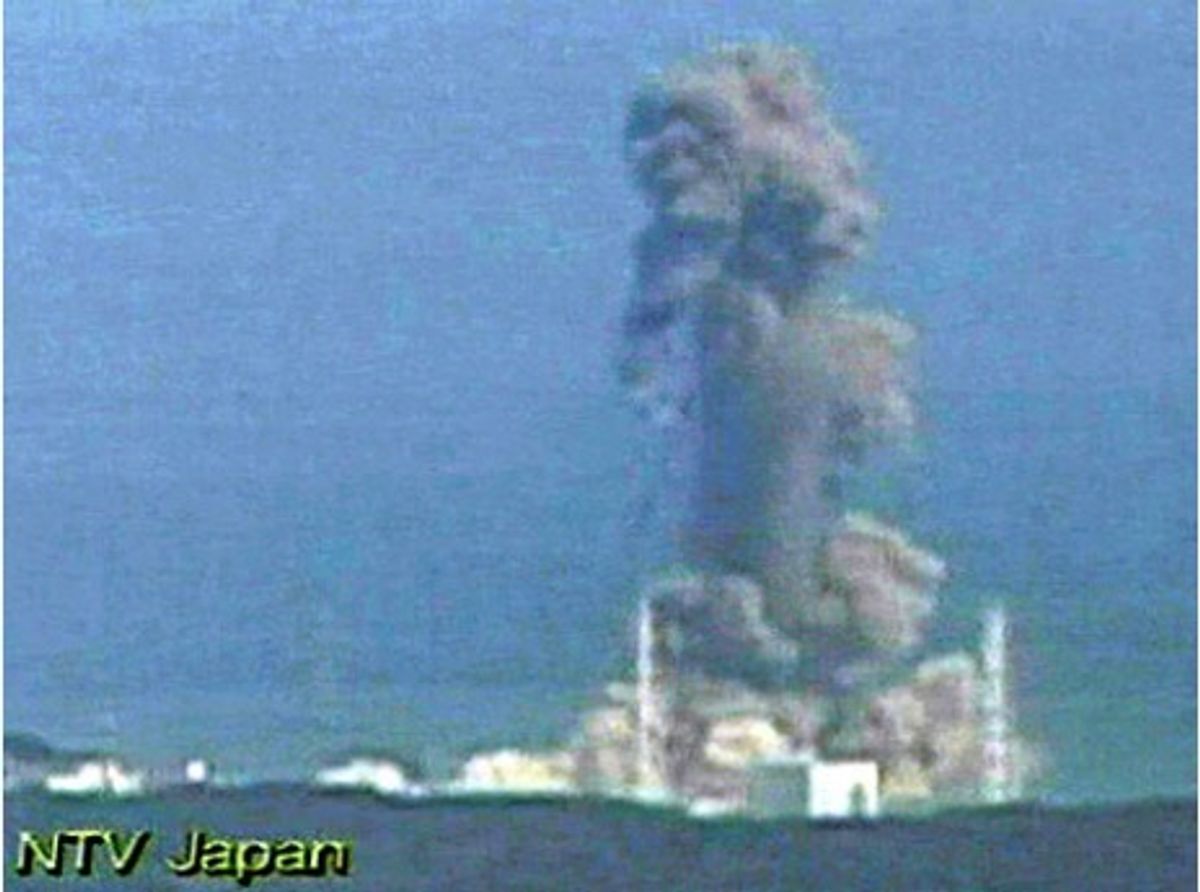This one is not a tough call: The Fukushima nuclear catastrophe was hands-down the major energy event of 2011.
Two aspects of the disaster were particularly devastating. First, its unprecedented scope--three reactor partial meltdowns, two hydrogen explosions that destroyed outer containment buildings, and a raging fire in a spent-fuel pond--all providing vivid television images of a situation utterly beyond human control.
Second, badly amplifying that image, the incompetence and haplessness of the corporate and governmental response. The CEO of TEPCO, owner and operator of the reactor complex, reportedly fell into a fugue state, unable to make decisions and issue orders for days. Onsite representatives of Japan's nuclear regulator fled the stricken reactors, only to be ordered back; no single voice took responsibility as the crisis unfolded, so that the sense of governmental panic and incoherence got worse rather than better.*
All that gave credence to the anti-nuclear argument that all reactors are subject to worse-than-expected mishaps, and that sometimes, somewhere, the people responsible for operating and regulating reactors inevitably will turn out to be unfit for their jobs.
The general reaction in some of the world's richest countries, notably Germany and Italy, has been to reject nuclear energy once and for all.
Decades ago, an environmental activist named Richard Morgan wrote a book called "Nuclear Power: The Bargain We Can't Afford." Today that title seems more prescient than ever. Nuclear energy can do more than any other technology to sharply reduce greenhouse gas emissions; taking all environmental ramifications of competing technologies into account, nuclear is probably the cheapest source of baseload electricity; the volume of nuclear wastes is tiny compared to all the waste products of coal combustion; per megawatt capacity, the geographic footprint of reactor complexes is small compared to those of wind or solar complexes.
Despite all those benefits, the even more obvious risks of nuclear energy have come to dominate perceptions in the rich countries. As a result, it's clear now that net nuclear generation will decrease in the coming decades as older reactors are taken out of service, and that on balance nuclear will not make a positive contribution to reducing greenhouse gas emissions in North America, Europe, or Japan. Only in fast developing countries like China and India are nuclear prospects still positive.
______________________________________________________________________
* Though the corporate and official response to the Three Mile Island accident also was not ideal initially, as the crisis unfolded, the Nuclear Regulatory Commission's top safety official, Harold Denton, made the best of a bad situation with candid status assessments. As required by Japanese law, the country's nuclear regulator established a regional command center immediately after the Fukushima Daiichi accident, and the prime minister visited; yet the prime minister himself mistrusted what he was hearing from his nuclear safety advisers, and the advisers never established a credible public presence.



